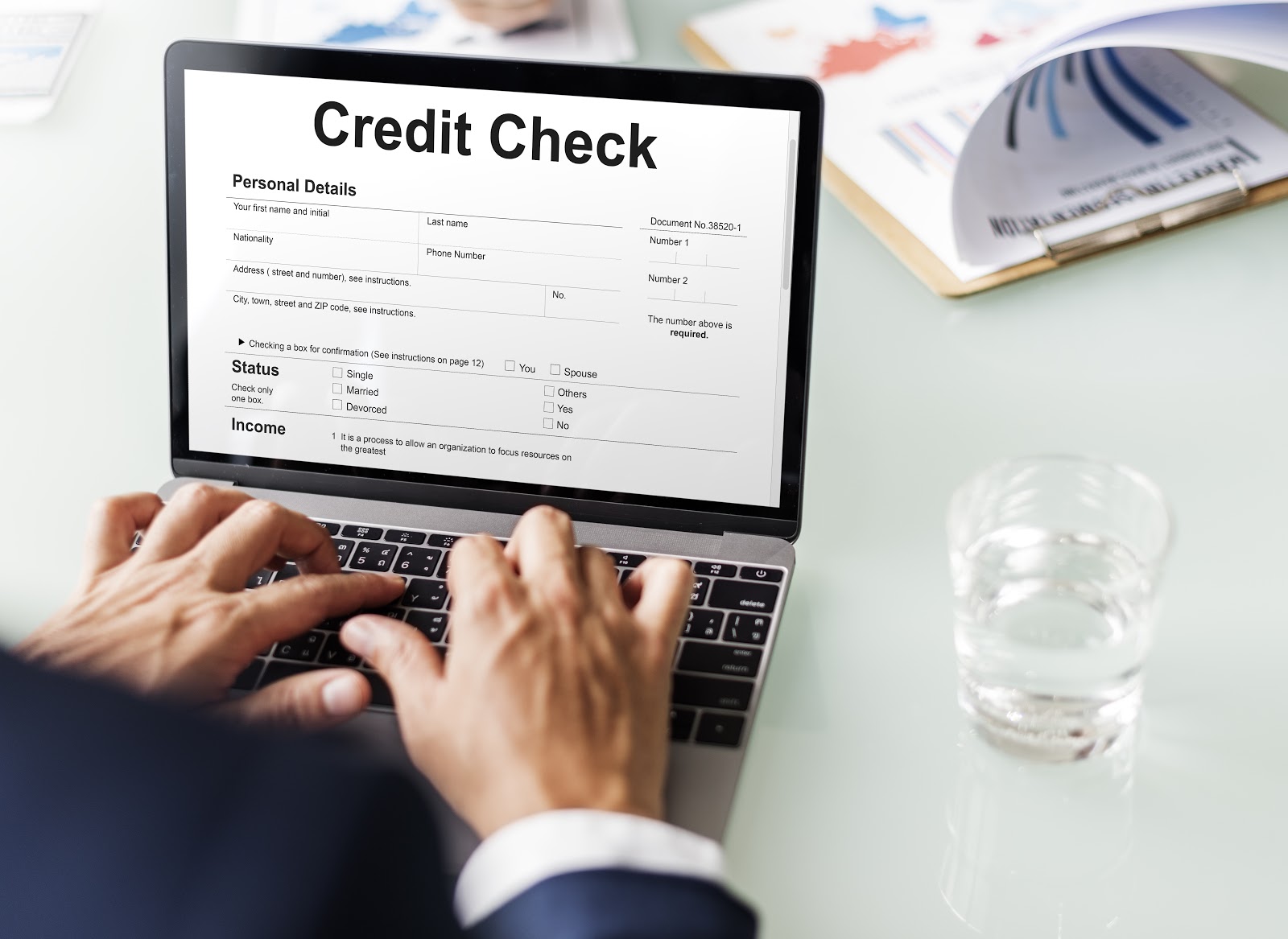Top 12 Credit Score Myths
By the time you are in your twenties, you likely know at least a little bit about your credit score.
You know that it is a number that credit providers use to approve or disapprove your applications, and that it keeps a record of all your credit cards and personal loans.
You may have also come to believe a range of myths about credit scores that many people in Canada still believe. These myths range from the fairly innocuous to the completely wrong, and believing in them can actually damage your credit score.
We’ve broken down the top 12 most commonly believed credit score myths and explained how or why they are wrong and what the situation actually is. Read on below to find out everything you need to know about your credit score.
Once You Have Bad Credit You’re Stuck With It
One of the most widely believed, and also completely untrue, credit score myths in the world is that once you have been labelled as having a bad credit score you are stuck with it for the rest of your life.
This belief is completely incorrect, but if you believe it in enough it could essentially become true. If you know that you have a bad credit score and believe there is nothing you can do to fix it, you would not likely be inclined to look into ways to improve your credit score, thus becoming a self fulfilling prophecy. However, in reality, there are many ways to improve your credit score and go from bad credit to the best credit in town.
Paying off your debts, consolidating credit accounts, and making regular, on time repayments are all fantastic ways you can begin to improve your credit score today. If you have poor credit but need to get into a car today, a bad credit car loan in Toronto is an ideal solution. Auto Loan Solutions is Ontario’s leading subprime credit car loan providers, offering both highly competitive rates with major banks, and over 7,000 cars to choose from. We even deliver your new car anywhere in the province once you have been approved for your loan. Just contact our friendly team and begin your credit repair journey today.

Credit Checks Hurt Your Score
Many people believe that when you check your credit score, you actually lower it through the act of checking it. The reality is a little more complicated than that.
When an individual checks their own credit score, either through a credit bureau or from a free credit checking service, they are performing what is known as a “soft” credit check. These are checks that merely display your score and your credit history, without the implication that new credit is being sought on your file. Soft checks do not impact your score at all and are, in fact, encouraged by credit bureaus to ensure you know your position and to monitor whether you have been impacted by identity theft.
When you apply for any form of credit, the credit provider will perform a “hard” credit check. These checks do impact your credit score, as they are seen as a credit event and a reflection on your need for credit at a given time. Hard checks will be recorded on your credit file and will generally lower your score by 10 to 20 points initially. This minor dip will be rectified in a few months, and after several years the initial enquiry will be removed completely from your credit history.
Closing Credit Cards Will Boost Your Score
Contrary to popular belief, closing credit card accounts will not necessarily improve your credit score.
This is due to what is known as your credit utilisation ratio. This is a ratio of the total amount of credit your have been approved for compared to amount of credit used across all your accounts. For example, if you have a credit card with a limit of $1,000, but have spent $500, you would have a credit utilisation ratio of 50%. Generally speaking, credit bureaus advise you to keep your ratio no higher than 30% at any given moment, as your ratio will have a big month to month impact on your credit score.
If you have a credit card with a large balance outstanding, by all means you should aim to pay it off as fast as you can. However, once you have the balance down to less than 30%, stop to think about what impact closing the account might have on your ratio. Let’s say you have two credit cards, one has a limit of $1,000 and the other has a limit of $2,000. If you have $1,000 owing on the higher credit limit card but none owing on the lower limit card, your credit utilisation ratio would be 30% ($1,000 owing divided by $3,000 total approved credit). However, if you closed your $1,000 credit card, all of a sudden your total approved credit falls to $2,000 and your ratio has jumped to 50%. Thus, it is important to consider the knock on effects of closing your credit card on your overall ratio. Generally it is smart to pay off a credit card completely and then let it sit there to help keep your ratio low.

Bad Credit Stops You From Being Approved For Anything
Many people think that if they have bad credit, they will automatically be denied any credit application they make without a second look.
If this was how the world actually worked, half of everyone wouldn’t be able to have a credit card or a car loan. Clearly, that is not realistic in today’s society. People with bad credit do still get approved for credit, however, they often have to pay higher interest rates than those with good credit. This is simply the nature of the credit score system and incentivises people to maintain a good credit score.
Auto Loan Solutions specialises in getting bad credit car loans approved with the lowest possible interest rates. Taking on a car loan is actually a great way to improve your credit score, and once your score has gone up, you can negotiate for a better rate to reflect that.
No Debt Means Good Credit Score
A common misconception surrounding credit scores is that having zero debt will mean you have a good credit score.
Your credit score is reflective of your trustworthiness with credit in the past, and your potential to continue to be a good credit user in the future. Having zero debt is generally a good position to be in, but if you have no credit lines open (in the form of loans, credit cards, etc.), then you will not have a very good credit score. This is because your credit score is based off your credit history, and if there is nothing in that history, your score cannot increase very far. This is the reason that a new arrival to Canada can arrive with zero debt, an even have a lot of money in the bank, but until they begin to open credit files and get some credit history built, their score will remain relatively modest.
The ideal situation is to have one or two credit cards open, where you maintain the balance at less than 30%. This will help you build your score while avoiding developing too much debt.
You Only Need To Check Your Score When Applying For Credit
People often tend to only think about their credit scores when they are wanting to apply for credit and don’t think they need to check it at any other time.
Yes it is true, you should be aware of your credit score before you apply for credit so you know whether you are likely to be approved or not. This can help you avoid an unnecessary hard credit check if you already have an idea that you might not be approved.
However, you should make it a habit to check your credit score periodically throughout the year to ensure there are no erroneous entries on your credit report and to look for warning signs that you have fallen victim to identity theft. Common signs include credit cards or personal loans that you do not recognise, a string of credit applications that you did not perform, and a sudden decrease in your credit score.
Catching this early can save you a lot of time and frustration in repairing your credit score in the long run.
Everyone Only Has One Credit Score
Most people will assume that they only have one universal credit score and that it is the same score that will be used across all credit applications.
In actuality, everyone has several different credit scores based of a variety of different scoring models. Two of the most common scoring methods used are FICO and VantageScore, which can produce significantly different scores for the same individual, as they will take into account different things during their calculations. Not only are the scoring models different, but different credit bureaus will also weigh different elements of a credit history to affect the final score. You would likely find that your Equifax credit score would be different from your TransUnion score and vice versa.
Generally, if you have a good credit history, this will be reflected in all of your scores, so you don’t have to worry too much about this.
Debit Cards Will Impact Your Credit Score
Conventional belief would hold that any kind of financial account or card will have an impact on your credit score.
This is untrue. As the name suggests, credit scores refer only to your use of credit, such as in credit cards, personal loans, mortgages, and so on. A debit card or prepaid card are linked to your own actual funds, not those borrowed funds of a credit provider. Thus, these kinds of accounts are not involved with credit in any way and do not impact your score. This means you can use a debit or prepaid card as much as you want without worrying about the impact on your score. However, you should also look into opening a credit card or taking out a car loan in Toronto to help build your credit score for the future.
Having A Healthy Savings Account Will Improve Your Credit Score
Similar to the myth above, many people might assume that having a lot of money in the bank will directly translate to having a great credit score.
This is not strictly true, but available funds can play some role in determining your credit score. Your score is based off your history of making bill payments on time, and if you have a lot of money to do so, you are likely more able to meet these financial obligations. Of course, even people with plenty of available funds can be forgetful and a credit card can slip through the cracks. If a credit card is left with an open balance for longer than 6 months, it is closed and considered defaulted on, which is one of the fastest ways to tank your credit score. Even if you have plenty of money, you can still get a bad credit score if you end up in these scenarios.
Your And Your Spouse Share A Credit Score
Unlike many things when you tie the knot, you and your spouse’s credit scores will remain separate.
Despite the legal and social ramifications of marriage, your credit score is one of the few things that will remain unique to each individual in a relationship. This protects each spouse’s credit scores from the potentially poorer scores of their significant other, allowing them to apply for better interest rates on credit products. Should a married couple open a joint credit card, the activity on that card will be reflected on both credit scores.
Applying For Credit Will Lower Your Credit Score
This has been touched on in some of our other myths, but ones of the most pervasive credit score myths is that applying for credit will directly lower your credit score.
This is a yes and no situation. Yes, when you apply for credit your potential credit provider will perform a hard credit check that has the potential to dip your score. However, by how much your credit score actually falls or whether it falls at all is not a given, so applying for credit can actually end up having a negligible impact on your score. Tangentially, applying for credit can actually improve your credit score if you are approved for your credit and keep it in good standing.
Potential Employers Will Check Your Credit Score
This is another nuanced credit score myth that many believe.
Employment opportunities in certain industries like finance may involve some credit checking during the application process. This is to ensure that those giving financial advice are actually in a good financial position themselves. However, it is illegal for employers to access your final credit score. They can access your credit report, which lists your various open accounts and will show them if you are in significant debt, but they cannot see a numerical value attached to the report.
Do you have another credit myth that you want busted? Let us know in the comments below!






